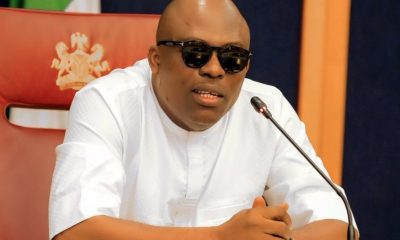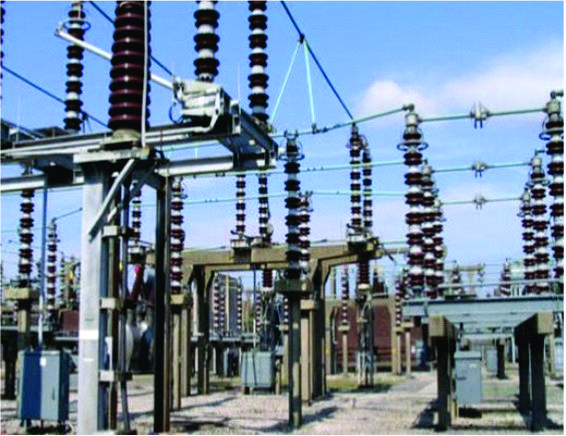- releases Power Sector Payment Assurance Program for GENCOs
In recognition of the critical role that energy and access to electricity plays in economic growth and poverty reduction, the Federal Government of Nigeria (FGN) as part of its Economic Growth and Recovery Plan, at its Federal Executive Council meeting of 1st March 2017 has taken far-reaching steps to reset the electricity industry.
These steps, conceived within a sequence of sector reforms, confirm Government’s commitment to enforcing decisions taken as a nation to move from a vertically integrated Government owned statutory monopoly that did not serve our power needs, to a private sector led industry –with Government as guarantor, regulator and policy maker– that achieves the objective of developing a better and sustainable power sector as quickly as possible.
The first step was marked by the recent inauguration of commissioners for the Nigerian Electricity Regulatory Commission. The reconstituted Commission provides the requisite legal and regulatory framework to implement a credible recovery program.
The second critical element of the recovery plan is to provide payment assurance to electricity generation companies, improve financial liquidity in the power and banking sector and ensure households and businesses are provided with electricity, which is critical for economic growth, job creation and wealth creation.
Accordingly, the FGN is committing up to N702 billion to the Nigerian Bulk Electricity Trading (NBET) to guarantee the payment of its obligations for electricity delivered to our homes, businesses, industries and government establishments.
These plans alone will not solve all the problems of the power sector or produce overnight the electricity that has eluded us for decades. However, they are conceived within a package of measures to ensure that the electricity system continues on a steady trajectory of growth, better service delivery and a climate where investors who play by the rules set by the Commission and deliver results that benefit the consuming public are compensated appropriately.
As required by the Electric Power Sector Reform Act passed by the National Assembly in 2005, the Commission licensed 11 distribution companies (DisCos) to distribute and sell electricity. The companies are 60% owned by private investors with Government retaining a 40% shareholding. Government also established NBET, 100% owned by Government, to buy electricity in bulk from electricity generating companies (GenCos) licensed to produce electricity.
The intention was that while the DisCos take the time necessary to improve and expand their networks of substations and lines, enumerate and meter their customers, buy additional power directly from GenCos and provide better customer services, the existing and new GenCos could confidently make investments to expand generation with assurance that the bulk buyer would pay them for the electricity they deliver.
Government retained ownership for the time being of the transmission system used to transmit the electricity from the GenCos to the Discos.
The DisCos have not improved customer services at the pace Government and the country expect. The DisCos also do not pay fully for the electricity they receive from the GenCos through NBET. Some of the reasons for this failure are not the fault of the DisCos alone – regulatory and tariff inconsistencies of the past Administration, unexpected changes in the foreign exchange market, and lower than expected generation due largely to pipeline vandalization for example, have challenged the DisCos’ ability to perform. But much of the failure relates to their inadequate financial and technical capacity and some sharp practices of the DisCos in their administration of collections from customers.
Consequently the money NBET collects monthly from the DisCos is not enough to pay NBET’s contractual obligation to the GenCos. NBET is 100% owned by FGN, so NBET’s debt is Government’s debt even though it originates from the DisCos debt to NBET. In recent months the payment by the Discos to NBET was as low as 17.0% of NBET’s invoice. In January 2017, it was 24.9%. The GenCos in turn do not pay their gas suppliers, equipment suppliers, banks and other partners what they are contractually bound to pay. The DisCos also do not pay TCN what is contractually due to it for transmitting the energy the DisCos sell to consumers.
These resulting payment shortfalls and the accumulated debts are increasingly threatening the electricity supply system. They are also undermining the growth of the economy and the electricity sector by discouraging new investors from building new power stations and transmission facilities.
The N702 billion payment guarantee support to NBET will be effective from January 2017. From that date the support will enable NBET to pay its obligations to GenCos and through them to their gas suppliers, equipment suppliers, banks and other partners, while working with the DisCos, Government and the Commission, to improve the DisCos’ payment performance from its current 24.9% level with 100% payment as the target. Subsequent, complementary interventions will ultimately seek to achieve the following:
1. Strengthen financial transparency and discipline to ensure that all industry revenues are fairly distributed to all market participants and their suppliers according to contractual commitments.
2. Achieve and exceed the contracted and committed ATC&C loss targets and sustain aggregate collection efficiency above 60%.
3. Secure adequate capitalization and liquidity to ensure that all market participants, particularly those upstream of the Discos, are paid according to contracts and are adequately funded to sustain and expand their operations.
4. Attain and sustain generation, transmission and distribution above 4,000 MWh/h delivered to customers, from lowest cost base load GenCos by deploying and/or facilitating new generation using all available energy sources, recovering lost gas supply, adding gas new supply, and completing transmission projects curtailing generation particularly in the eastern part of the national grid.
Through wider consultation, implement a simplified tariff methodology that more accurately reflects market realities, exchange rate realities, and the cost of producing and delivering electricity.


 Agribusiness1 week ago
Agribusiness1 week ago
 News1 week ago
News1 week ago
 News1 week ago
News1 week ago
 Football5 days ago
Football5 days ago
 Football1 week ago
Football1 week ago
 Football1 week ago
Football1 week ago
 Entertainment4 days ago
Entertainment4 days ago
 Football6 days ago
Football6 days ago

